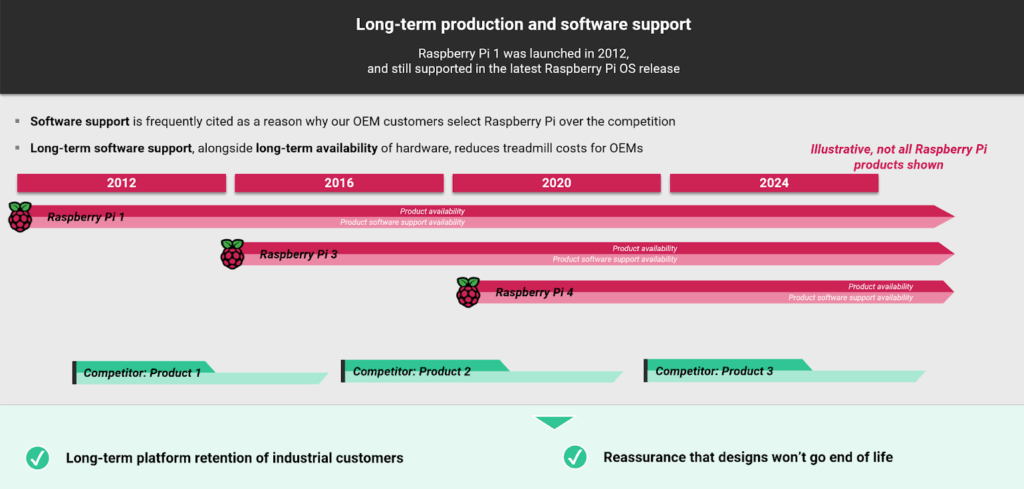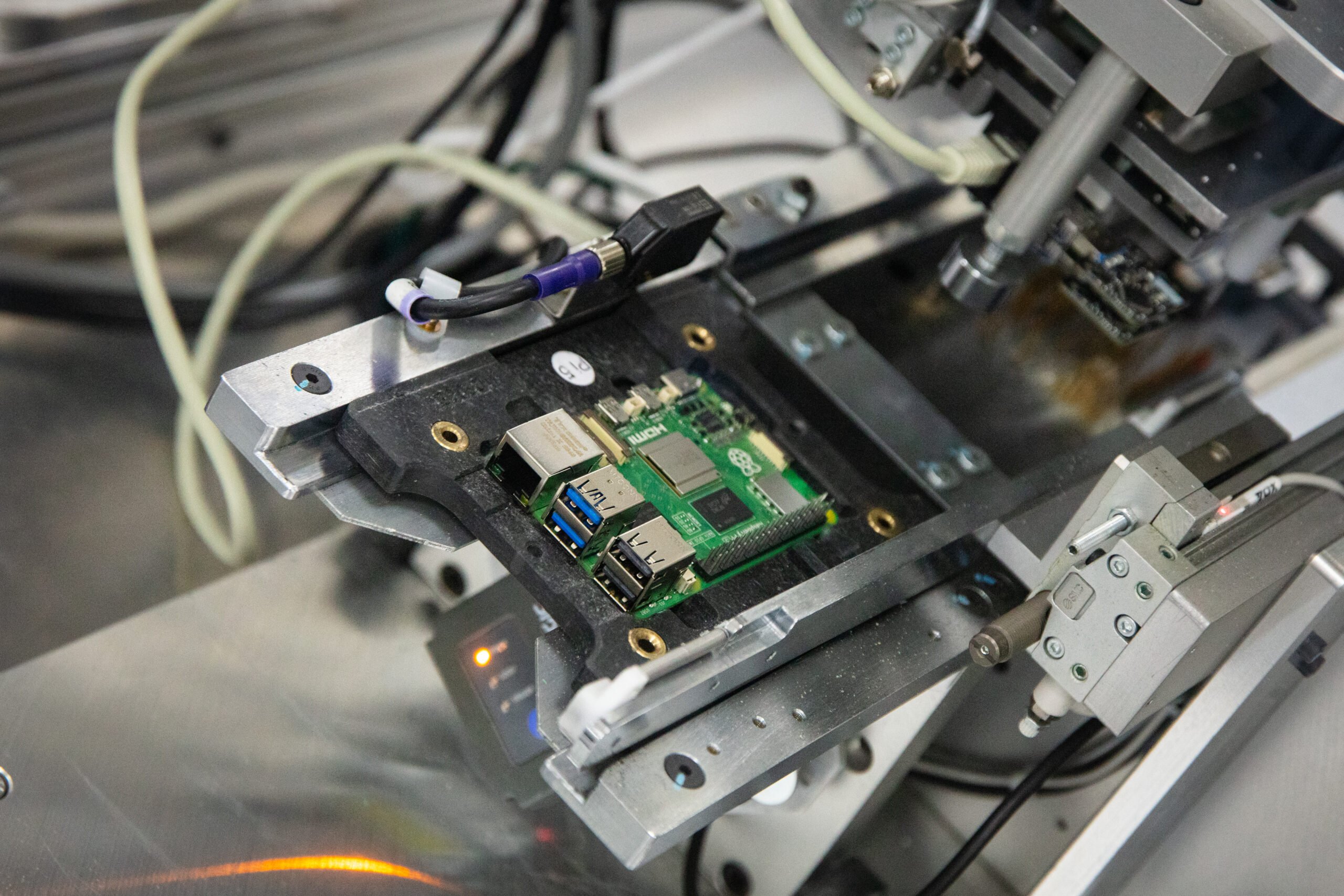Raspberry Pi’s commitment to longevity: a sustainable advantage
In a commercial landscape defined by rapid technological turnover, managing electronic waste and integrating sustainable practices have become critical for businesses. Raspberry Pi’s strategy is rooted in a commitment to long product manufacturing lifetimes and comprehensive software support, providing a tangible and effective response to these challenges. It establishes a clear competitive advantage by aligning our commercial interests with our efforts to be environmentally responsible.

The frequent obsolescence of electronic components poses significant operational and financial burdens for technology companies. These businesses are often forced to undertake costly and time-consuming product redesigns, or even halt production completely, due to the discontinuation of a vital part. At Raspberry Pi, we mitigate this risk by pledging to manufacture our core products for extended periods. Take the flagship Raspberry Pi 5, for example: it has a guaranteed minimum manufacturing end date of January 2038, with production of many of its key silicon components extending as far as 2042. This long-term commitment provides our industrial clients with a high degree of supply chain stability, reducing the need for cyclical redesigns and generating less electronic waste.
This commitment to product longevity extends even to our earliest products. A customer can still purchase a Raspberry Pi 1 manufactured at Sony’s factory in Wales today, with hundreds of units still being sold each month. This continued demand and availability demonstrate the enduring trust that industrial customers have placed in the Raspberry Pi platform, a trust that is actively supported by Raspberry Pi.

Longevity goes beyond hardware manufacture at Raspberry Pi; our policy of providing ongoing software support for all our products, regardless of age, is a fundamental pillar of our sustainability model. This contrasts with common industry practices, where support is often withdrawn shortly after a product’s release. By ensuring our devices remain functional, secure, and compatible through consistent updates, Raspberry Pi enables businesses to extend the operational lifetime of their embedded systems. This practice directly contributes to a reduction in electronic waste by decoupling the need to upgrade from the expiry of software support.
The practical benefits of this strategy are measurable for companies using Raspberry Pi. They include:
- Reduced electronic waste: long-term availability of hardware and software decreases the rate of product turnover, thereby lowering the volume of electronic waste.
- Cost efficiency: less frequent redesigns lead to considerable savings in research and development expenditure.
- Operational reliability: a stable, long-supported platform enhances the durability and dependability of industrial applications.

Raspberry Pi’s dedication to product longevity and sustained support isn’t just a corporate slogan — it’s a pragmatic business model. It enables companies to integrate a reliable and durable platform into their designs, and helps them contribute towards a more sustainable electronics ecosystem while simultaneously creating a strategic advantage in a market that increasingly values responsible production.
The post Raspberry Pi’s commitment to longevity: a sustainable advantage appeared first on Raspberry Pi.
from News - Raspberry Pi https://ift.tt/89OMrX0
Comments
Post a Comment